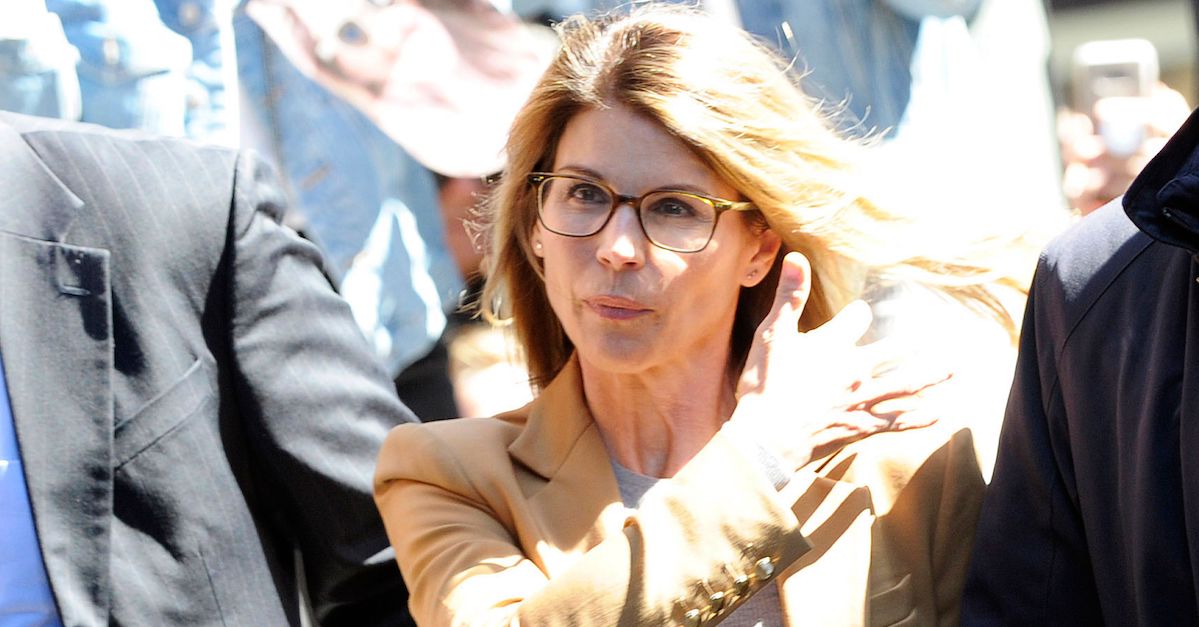
The latest filing in the ongoing college admissions controversy could show the way out for Lori Loughlin, and perhaps other defendants in “Operation Varsity Blues.”
Filed by attorneys on behalf of eCommerce investor Robert Zangrillo, the court document was submitted in the criminal case against Canadian football star and energy mogul David Sidoo–so it is not directly related to Loughlin’s case. But the alleged facts are, if true, quite likely to be of interest to Loughlin’s own legal team.
Specifically, the filing is stylized as a motion compel the University of Southern California (USC) to produce certain documents which, Zangrillo argues, will “prove the existence of a university-wide program at USC…where past donations, pledges of future donations or expectation of future donations…deeply affects the chances for a prospective student’s admission.” Note that it has been reported that the $500,000 Loughlin and her husband Mossimo Giannulli paid out was no different from donating a library.
Zangrillo’s argument is fairly straightforward: USC not only knew about the pay-to-play scandal facilitated by William “Rick” Singer, but the university itself was involved part-and-parcel. Far beyond passive participation, Zangrillo asserts, USC itself helped to craft and facilitated the system wherein the wealthy of the world purchased college spots for their lackluster would-be scholars.
Zangrillo alleged that this is how things have long worked at USC:
The notion that Robert Zangrillo’s $50,000 check to USC, made after his daughter’s admission, was a “bribe” is legally wrong – there was no quid pro quo corrupt agreement between Mr. Zangrillo and USC that brought this relatively ordinary gift to a university into the orbit of the federal criminal law. It was a donation indistinguishable from the vast numbers of other donations by parents of students made to USC and apparently to other universities and colleges nationwide.
So far, however, USC has disagreed with Zangrillo and resisted his efforts to even pull them into the case. Indeed, the filing is technically a response to USC’s motion to quash wherein the university simply argued they have no business being dragged into the still-unfolding legal mess. In the Loughlin case, for instance, USC is considered a victim.
But how does Zangrillo hope to pull the jewel of the Golden State’s higher education system directly into the criminal case? He says USC is in possession of their own receipts — that is, not only did USC (1) know about the pay-to-play system; and (2) help to facilitate said system, but they also (3) allegedly took notes on this conspiracy of cash and tracked its efficacy. And, Zangrillo claims, it implicates basically everyone.
“The documents being sought will help demonstrate how the practice of making donations was welcomed and tracked at USC and how such donations had a significant effect on improving a prospective student’s chances for admission,” the filing continued. “[T]he documents will further show that the tagging of students as ‘VIP’ or ‘special interest’ and the correlation of such tagging with past or the pledge or expectation of future donations from wealthy or ‘well-connected’ parents was not in any way limited to the Athletics Department; instead, the practice was university-wide, employed by the heads of other schools or departments or programs within USC other than Athletics, and known to and approved by the head of Admissions as well as other high-ranking officials at USC.”
USC’s Dean of Admission Tim Brunold responded, in a previous court filing, by asserting that the university “does not track donations by an applicant’s family” or “specifically track the percentage of special interest students who are admitted.”
Zangrillo’s attorneys say that’s simply not true–and that USC’s own documents clearly put the lie to such claims.
Again the filing (emphasis in original):
A review of Exhibit 1 (document entitled “Cumulative Special Interest 2012-2015”) would alone reflect the tracking of hundreds of applicants with specific reference to which USC employee designated the applicant as a special interest candidate and often with notes reflecting donations, pledges to donate, or opinions that the family of the applicant could be solicited for specific donations in the future.
And, Zangrillo said, USC isn’t even really disputing the basic matter at issue here. To begin with, the university acknowledged that prospective students were often marked as VIPs or “special interest” candidates. Additionally, Brunold and USC have so far responded to the discovery requests by offering a related but separate argument–in two parts.
First, USC claims that “[t]here is no possible way to consistently determine which employees issued special interest tags to which students,” while also arguing that there is no way for the admissions office to “know how much the family of an applicant has donated.”
Zangrillo’s filing dismissed the first line of argument as irrelevant and unrepresentative of what’s actually being asked.
“The issue is not whether USC has ‘specific documents identifying all of the students who are tagged [or] who applied the tags [or] why the tags were applied,'” the filing argues in a footnote. Rather, the issue is “whether [USC] has documents that meet the production requests of the subpoena.”
And as for the university’s second argument? Zangrillo said the school is simply not being honest.
According to the filing, former USC senior associate athletic director Donna Heinel “consistently apprised Brunold of [VIP and/or special interest] donations at the time he was called upon to make admission decisions.”
Zangrillo Filing re: USC Mo… by Law&Crime on Scribd
[image via JOSEPH PREZIOSO/AFP/Getty Images]